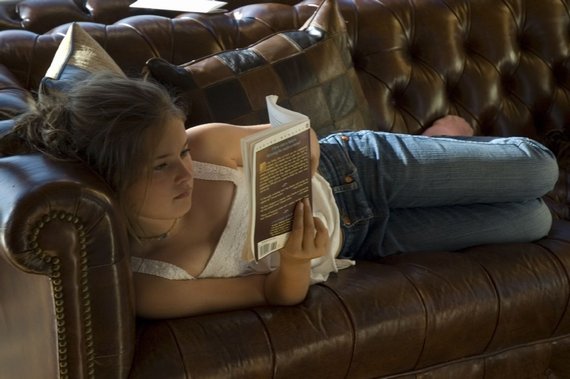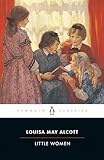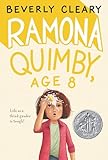
1.
As had become our Saturday morning summer routine, my friend and I were sitting on the benches outside of our local café nursing iced coffees and watching the neighborhood go by.
“That’s a weird outfit,” Anshu said, nodding in the direction of a man whose printed belt matched his printed shoes, which matched his printed hat.
“Is it just me or are there more lesbians around here than there used to be?” I responded.
“Maybe.” She chewed on her straw. “Remember that time in college when it snowed two feet? I want it to be cold like that now.”
I nodded. We were silent, taking in the traffic and the people coming and going and the small dog that was tied to a signpost and the woman who was having a battle of the wills with her bike lock.
Anshu’s eyes then landed on a girl—about nine or ten—sitting with her mother on the bench beside us, oblivious to everything, her nose in a book.
“She’s reading The Witches,” Anshu said, nudging me and nodding in the child’s direction. “I can see the words ‘Norwegian Witch’ from here.”
I looked over. Sure enough, I could read the large, child-sized font from where I sat as well. I looked again at Anshu, who is not known for her soft side. I could almost reach out with my bare hands and grab hold of her desire to be picked up out of her own body and replaced into that of the girl’s.
“I love Roald Dahl,” Anshu was growing more misty-eyed by the second. “I wonder if her mother gave her the book?”
“I don’t know,” I said noncommittally and eyeing the girl’s mother who, like us moments earlier, seemed preoccupied by the intricacies of traffic patterns.
Anshu was on a roll: “James and the Giant Peach, The Fantastic Mr. Fox, The Twits. Do you remember The Twits?”
I smiled. I wanted her to keep indulging the nostalgia.
From there we traded childhood reading habits. Anshu had grown up Indian-American in Seattle and I had grown up Just Plain American in Virginia, but our formative literary lives had been the same. We remembered bringing books to the dinner table and we remembered being told to put them away and participate in conversation. There were the flashlights snuck into bed for reading after lights out. I was indignant all over again about Amy stealing Laurie out from under Jo even if Jo didn’t care. Anshu described running across her backyard in Seattle the way she imagined Anne ran across the fields of Prince Edward Island towards Green Gables. We both remembered how, when we walked our family dogs, we would leave the house with a leash in one hand, a book in the other. The walks, which without a novel seemed endless and boring, would be over and we’d be back at our front doors—dogs relieved, parents satisfied—before we had even had a chance to look around and take note of the clouds, the weather, our fellow dog walkers, trash days, “For Sale” signs, the Volvos parked in driveways.
I wondered whether these experiences were some of the things that had led us to be, at thirty, sitting together on a bench in Brooklyn: single, childless roommates.
2.
If we are lucky we are read to before we read to ourselves. That is where it all originates. For me, the beginning of the story went like this:
 Dinner is over. It was creamed asparagus on toast and I had seconds. Dad is doing the dishes and my sister is upstairs in her room finishing her homework. The dog is licking the dishes sitting pre-washed but still dirty in the dishwasher. It is almost my bedtime, but first mom will read a chapter aloud. Every night for almost two months we have been sitting down together on the couch at this time and, as dusk gathers outside, she has been reading me Little Women. Before starting, she reaches an arm around me. There’s a part of her that is a would-be actress and so she is good at reading, doing distinct voices for different characters in their various situations: Meg leaving home, Jo cutting her hair, Beth exclaiming over that piano, Amy telling Jo she’s fallen for Laurie, Marmee in the arm chair by the fire reading letters from their father on the front.
Dinner is over. It was creamed asparagus on toast and I had seconds. Dad is doing the dishes and my sister is upstairs in her room finishing her homework. The dog is licking the dishes sitting pre-washed but still dirty in the dishwasher. It is almost my bedtime, but first mom will read a chapter aloud. Every night for almost two months we have been sitting down together on the couch at this time and, as dusk gathers outside, she has been reading me Little Women. Before starting, she reaches an arm around me. There’s a part of her that is a would-be actress and so she is good at reading, doing distinct voices for different characters in their various situations: Meg leaving home, Jo cutting her hair, Beth exclaiming over that piano, Amy telling Jo she’s fallen for Laurie, Marmee in the arm chair by the fire reading letters from their father on the front.
At the end of each chapter, my mother gets quiet and still for a moment. By now it is completely dark outside and I can’t believe how quickly the time has passed. I can’t even see the trees in the front yard. Then: “Bedtime,” she announces decisively. I protest. Just a few more pages. One more chapter. But my mother grew up in the fifties on a chicken farm in rural Maine and has the get-on-with-it attitude of that time and place. “No, it’s off to bed with you,” she says taking her arm from around me and closing the book. “Another chapter tomorrow night.”
And so it would be until there were no more chapters because the little women had all grown up.
3.
If there is one thing that can consistently reduce even the most hardened cynic to a sentimental softie, it is the books she read as a child.
Of course, we still read, my friends and I. We read on the subway and on the couch or in bed just as we used to do. But it’s not the same: the subway ride ends, the couch inspires naptime, a flashlight under the covers is absurd. I certainly can’t remember the last time I heard someone say, “I was walking down the street reading a book when….”
The closest I’ve come to witnessing such a scenario was last summer when a friend and I were going hiking. She had her nose in the trail map and we had yet to leave the parking lot or break a sweat when—not looking where she was going—she fell off the curb, cutting herself so badly she ended up needing to go to the hospital and foregoing the hike. In the time between now and when we last walked the dog and read a novel at the same time, it seems we’ve lost the ability to read and walk simultaneously. These days, I put dinnertime ahead of reading and fit the latter in where I can and when I feel like it. Often, until I am directly confronted with the sight of a girl and her book—a sight outside the purview of my current routines—it can slip my mind that I, too, used to read like that. To love reading like that.
As it was with our first loves, we fall hard for our first books. When we were with them the rest of the world fell away. And as with our first loves, we will never let go of ourselves like that again. I’ve asked myself when it was I read for the last time as a child, but the question is as pointless as asking when me and my first love lost what it was we once had. The answer is probably nothing more than, “One day the magic was there and the next day it wasn’t.” At some point I just took the dog for a walk without a novel, looked around, and either the things around me had changed or I had.
The diminishment of the intensity is an evolutionary imperative. We reach a point at which we no longer allow ourselves to read like that because if we did we would never get anything else done. We wouldn’t meet new people or remember to make those doctors appointments. If we still read with the intensity of an eight-year-old or loved with the intensity of a novice, at thirty we might forget to leave the house at all.
4.


 While the same could be said for boys—who I am sure have their own list of classics that conjure a unique common history—I am speaking here for girls. Girls and the books that taught them everything from how to reach out and touch something fuzzy to what it was like to get their periods and find an insane not-so-ex-wife in the attic. Just a list of titles is enough to conjure the timeline of an entire X-chromosomed American childhood: Pat the Bunny, The Runaway Bunny, Blueberries for Sal, The Lonely Doll, Miss Rumphius, Madeline, The Secret Garden, Little House on the Prairie, Little Women, Ramona Quimby Age 8, The BFG, Island of the Blue Dolphins, The Black Stallion, Misty of Chincoteague, Julie of the Wolves, Jacob Have I Loved, Are You There God, It’s Me, Margaret, Jane Eyre, Anne of Green Gables, Rebecca, Jane Eyre again, Wuthering Heights, Pride and Prejudice, Jane Eyre again, Ethan Frome…
While the same could be said for boys—who I am sure have their own list of classics that conjure a unique common history—I am speaking here for girls. Girls and the books that taught them everything from how to reach out and touch something fuzzy to what it was like to get their periods and find an insane not-so-ex-wife in the attic. Just a list of titles is enough to conjure the timeline of an entire X-chromosomed American childhood: Pat the Bunny, The Runaway Bunny, Blueberries for Sal, The Lonely Doll, Miss Rumphius, Madeline, The Secret Garden, Little House on the Prairie, Little Women, Ramona Quimby Age 8, The BFG, Island of the Blue Dolphins, The Black Stallion, Misty of Chincoteague, Julie of the Wolves, Jacob Have I Loved, Are You There God, It’s Me, Margaret, Jane Eyre, Anne of Green Gables, Rebecca, Jane Eyre again, Wuthering Heights, Pride and Prejudice, Jane Eyre again, Ethan Frome…
Somewhere around Ethan Frome is where the unselfconscious abandon began to dissipate in lieu of simply sincere appreciation and sometimes even a little critical distance. Whereas I can’t count the number of books I couldn’t put down in the first fifteen years of my life, I could name on two hands and feet the number of books I’ve felt that way about in my second fifteen years. But that fact does not make me sad or give me pause and not because I tell myself that if it were otherwise I would have ended up a hobo. What seems to matter most is that I had those first fifteen years to begin with.
My friends feel similarly. One formerly horse-crazy friend talks often about her childhood passion for the Marguerite Henry books. Another friend has an entire shelf devoted to her childhood library, and that’s where she turns on the days when she’s tempted to get in bed and never get out. Another friend has taken it all a step further than the rest of us and is getting a Ph.D. in Y.A. Literature, writing academic papers on Ramona and The Twits that she then presents at high-brow conferences across the country. These are the things we have carried with us and as such are the things we have to give away.
 When I turned thirty this year, the same friend who had fallen off the curb and gone to the hospital gave me her three favorite Y.A. novels from childhood. A few months earlier, she and I had compared notes on what we’d read when we were young and she had learned that her favorites had not been on my early reading lists. When I told her I hadn’t read Caddie Woodlawn she said, “You haven’t?!” as if I just told her I had never brushed my teeth. With this birthday present she had wanted to rectify that—to her mind—gaping hole in my life.
When I turned thirty this year, the same friend who had fallen off the curb and gone to the hospital gave me her three favorite Y.A. novels from childhood. A few months earlier, she and I had compared notes on what we’d read when we were young and she had learned that her favorites had not been on my early reading lists. When I told her I hadn’t read Caddie Woodlawn she said, “You haven’t?!” as if I just told her I had never brushed my teeth. With this birthday present she had wanted to rectify that—to her mind—gaping hole in my life.
I haven’t read the books she gave me just yet, but the fact that she gave them to me at all is just it: Not only do we hold these books we’ve read and characters we grew up with close, but we want to share them, to pass them on. As of my writing this, my friend who fell off the curb is also single and childless. I am not convinced I was the person she wanted to be giving books to that day.
5.
When people have children, some are reluctant to admit it, but they have a secret preference in their hearts for a girl over a boy or vise versa and for a multitude of reasons. I am nowhere near the stage in life of being a parent myself, but when the time comes as I hope it one day will, I often think I want a girl. I want this because I recognize even now how much it will matter to me to know and understand how she is feeling and what she is learning and experiencing all for the first time. I know too how difficult it will be to access these complicated growing-up emotions of hers, ferreted as they will be inside a person not myself. To put a book that was once special to me into her hands and watch it become special to her is one way to do that. At least for a little while.
But before I send her off to read on her own, I want to be able to sit on the couch with her and do the voices of the characters. As it is with my mother, there is a would-be actress inside me, too. It will be getting dark outside and the spot on the couch where she and I will sit will be the only well-light place in the house. A husband will be doing the dishes and have a dog to keep him company and help with the grunt work. He won’t be watching because he wouldn’t want to intrude, but he will listen from the other room.
I will put my arm around her and start like this:
CHAPTER ONE: Playing Pilgrims
Christmas won’t be Christmas without any presents, grumbled Jo, lying on the rug…
Seen from outside the window, she and I in the arms of the light beside the couch might make you think that here is where the entire world begins and ends.
[Image credit: Frank]








